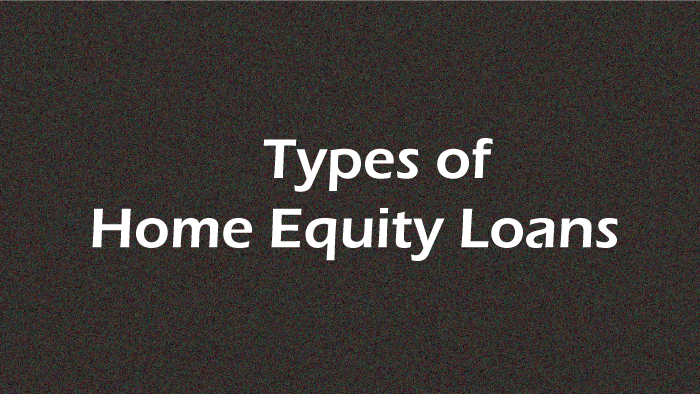How a Home Equity Loan Works, Rates, Requirements & CalculatorWhat is a Home Equity Loan?A home equity loan is a form of consumer lending ("debt") where homeowners can borrow money against the value of their properties. Sometimes, it is referred to as an "Equity Loan", a "Home Equity Instalment Loan", or a "second mortgage" loan; the term "second mortgage" was coined since a home equity loan is similar to a mortgage. Before issuing the loan, the loan sum is determined by subtracting the outstanding mortgage balance from the property's current market value. Home equity loans often have set rates of interest, whereas home equity lines of credit (HELOCs), the common alternative, typically have variable rates. 
How does it work?For the lender, the equity in the property acts as collateral. The combined loan-to-value (CLTV) ratio of 80% to 90% of the home's appraised value will be used in part to determine how much a homeowner is permitted to borrow; also, the loan amount and interest rate are determined by the borrower's creditworthiness and payment history. Similar to conventional mortgages, traditional home equity loans have a defined repayment period, and the borrower makes regular, set payments that include both principal and interest. Like any mortgage, the house could be sold to recoup the outstanding debt if the loan is not repaid. If one plans to use the money they borrow to make improvements to their house that will raise its worth, a home equity loan may be an excellent way to turn the equity they have built into cash. However, one needs to remember that they are risking their house; if property values fall, they can find themselves owing more than the house is worth. If one decides to relocate, they may lose money on selling their house or be unable to do so. Therefore, one must consider all the alternatives before taking a step that could place one's home at risk. Types of Home Equity Loans
Fixed-Rate LoansFixed-rate loans offer the borrower a single, lump-sum payment that is paid back over a predetermined period. The loan amount is repayable at the agreed-upon interest rate over a certain period. The interest rate on these loans stays constant throughout the loan term and is not affected by changes in the market. Benefits of a Fixed-Rate Home Equity Loan
Home Equity Line of Credit (HELOC)The interest rate on a "HELOC" may change depending on market conditions, and this loan operates in a way akin to a credit card. A portion of the pre-approved loan could be borrowed from the lending institution; the entire loan amount must be repaid at the end of the loan term. Generally, lending companies include HELOC in their credit card offerings. After paying off the debt, the borrower can borrow again up to the credit limit, similar to a credit card. Benefits of HELOCs
Pros and Cons of Home Equity LoanAdvantagesHome equity loans offer a simple way to get money and can be useful resources for responsible borrowers. Home equity loans are a wise choice if one has a consistent, predictable income source and is confident in their ability to pay back the loan due to their low-interest rates and potential tax deductions. There are no limitations on how someone can spend the money. Because the monthly payments are predetermined, they are predictable. Since it is a secured debt, many customers find it easier to get a home equity loan. To evaluate creditworthiness and the CLTV (combined loan to value), the lender performs a credit check and requests a home appraisal. Even if the interest rate on a home equity loan is more than the first mortgage's, it is still considerably less than the interest rates on credit cards and other consumer loans. If a borrower is certain of the amount and purpose of the loan, home equity loans are typically a good decision. Borrowers are guaranteed a specific sum, which they get in full at closing. Because the money is obtained all at once ("Lump-sum"), home equity loans are typically preferred for bigger, more expensive projects like remodelling, funding higher education, or even consolidating debt. DisadvantagesSince borrowers' homes serve as collateral for home equity loans, the lender can take the property if repeated payment defaults occur. In addition to the principal mortgage, they will have a second mortgage to pay off; if there is an existing loan on the property, the lenders may also auction it. One option for a second mortgage is a home equity loan. However, the closing costs are high, similar to the primary mortgage. Also, if borrowers pay off their loans early, they may be charged a prepayment or early termination fee. There is no flexibility; a home equity loan may not be the best option if an individual is uncertain of the amount of money they need to borrow. Home equity loans typically provide a fixed lump sum, so they may risk borrowing too little. On the other hand, they might take out too much debt, which they will have to pay back with interest later. Eligibility Criteria for Home Equity LoansHome equity loans function similarly to mortgages and auto loans. The borrower is provided with a lump sum amount that has to be paid back over a specified period in monthly instalments. A home equity loan is accepted if the borrower submits the necessary documentation demonstrating their ability to repay. Lenders typically use credit reports and ratings to evaluate a borrower's financial situation. Before the loan is approved, the applicant's credit will be closely reviewed. It could take a couple of days or a few weeks to process everything, depending on how financially viable they are. Remember that interest rates may be either fixed or floating. Therefore, a person should closely compare banks and other financial organisations when applying for home equity loans. How to calculate Home Equity?Lenders assess a borrower's equity in a home before granting a home equity loan. To put it simply, home equity is the difference between the value of a home and the liabilities owed. The equation is thus: Equity = Current value of the house - The total outstanding amount payable towards the loan For instance, if a home was acquired for Rs. 50 lakh, and a loan of Rs. 40 lakh was obtained; the home's current equity would be Rs. 10 lakh. To simplify, Equity = 50,00,000 ("Value of the house") - 40,00,000 ("Total loan payable") = 10,00,000 Assume that the house's worth has climbed to Rs. 75 lakh after a couple of years, and they've paid off 50% of the debt. They now have just Rs. 20 Lakh to pay the bank in loan payments, and the house value has also appreciated in these years. As a result, the home's equity will likewise rise in this scenario. The home's equity will now be: Equity = 75,00,000 ("Current value of the house") - 20,00,000 ("Total loan payable") = 55,00,000 As illustrated above, the home's equity fluctuates from time to time and can also decrease. A home's value will decrease if the real estate market in a particular location experiences a significant decline, and it will have a negative impact on the home's equity. Note: If one owns a house with no loan obligations, the equity would be based on the house's market value. |
 For Videos Join Our Youtube Channel: Join Now
For Videos Join Our Youtube Channel: Join Now
Feedback
- Send your Feedback to [email protected]
Help Others, Please Share









